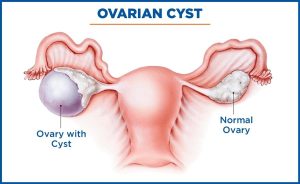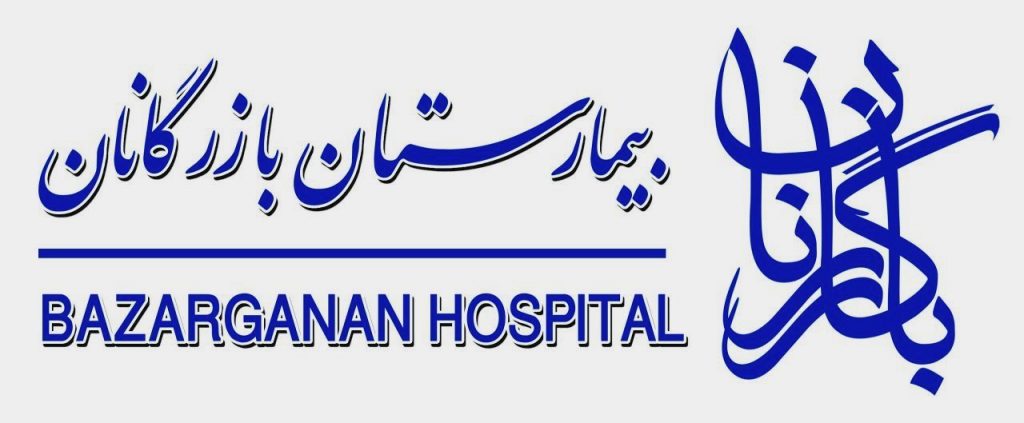Ovarian Cystectomy
What is an ovarian cystectomy?
An ovarian cystectomy is a procedure to remove ovarian cysts. An ovarian cyst is a sac or pouch on your ovary that contains fluid. These cysts are fairly common and often go away on their own without treatment. Your healthcare provider may recommend an ovarian cystectomy if you have an ovarian cyst that doesn’t go away, gets larger or causes pain.

Types of ovarian cystectomy
There are two ways surgeons remove ovarian cysts:
- Laparoscopic ovarian cystectomy: Your surgeon inserts a tiny camera with a light on the top (laparoscope) through a small incision in your abdomen. This device lets them view your reproductive and pelvic organs. The surgeon makes two other small incisions and places their surgical tools inside. Then, they remove the ovarian cyst through those incisions.
- Open cystectomy (laparotomy): Your surgeon uses one large incision in your abdomen to remove the ovarian cyst. They may choose this method if the ovarian cyst is large or if they suspect the cyst is cancerous.
Surgeons prefer laparoscopic ovarian cystectomy because it’s minimally invasive and easier for you to recover from than open surgery.
However, if they suspect cancer or if the cyst is too large for a laparoscopic removal, an open surgery may be the only option.
What is the main cause of an ovarian cyst?
The most common causes of ovarian cysts are:
- Hormonal disorders like polycystic ovary syndrome (PCOS).
- Ovulation or using drugs to induce ovulation.
- Endometriosis.
- Pelvic inflammatory disease.
- Cancer.
What does an ovarian cystectomy treat?
An ovarian cystectomy is the surgical removal of an ovarian cyst. Surgeons may use laparoscopic or open surgery to remove ovarian cysts. Your surgeon will explain each treatment option. Surgical treatment depends on several factors like:
- The size of the cyst.
- If the cyst is painful.
- Your plans for pregnancy.
- Your risk of cancer.
- Prior surgeries and medical history.
Why would someone need an ovarian cystectomy?
Ovarian cysts are common. Healthcare providers find them during pelvic exams or other imaging tests, often before you realize you have one. Most cysts go away on their own over time. If a cyst doesn’t go away, your healthcare provider may recommend surgery to remove it.
How do you prepare for an ovarian cystectomy?
Your surgeon will go over how to best prepare for surgery. Their preparation instructions may include things like when to stop eating and drinking, when to stop medications and what time to arrive at the hospital or surgical center. Be sure to ask any questions you have before the day of surgery.
What happens during an ovarian cystectomy?
You’ll be asleep under general anesthesia for an ovarian cystectomy. Your anesthesia provider will insert an intravenous (IV) catheter into your vein. The IV gives you medication and fluids during surgery. Once you’re asleep and prepped for surgery, your surgeon will begin the procedure.
During a laparoscopic cystectomy, your surgeon will insert a laparoscope through a tiny incision near your belly button. This device has a camera at the end. Your surgeon will inflate your abdominal wall with carbon dioxide (almost like a balloon). This gives them the best view of your pelvic organs.
Then, they’ll make two to three other incisions in your lower abdominal area to insert their surgical instruments through. The incisions are small — usually less than a half-inch long. Your surgeon removes the cyst through one of these other incisions. They may decide to test the cyst for cancer.
Finally, your surgeon deflates your abdomen and closes the incisions with dissolvable stitches. They typically cover the stitches with a bandage.
If a laparoscopic cystectomy isn’t possible, your surgeon will perform open surgery. This involves making one larger incision in your abdomen to remove the ovarian cyst. Once your surgeon removes the ovarian cyst through the incision, they sew your skin back together with stitches and apply a bandage for protection.
RISKS / BENEFITS
What are the advantages of an ovarian cystectomy?
The main advantage of an ovarian cystectomy is that your provider removes a potentially harmful or painful cyst from your ovary. Ovarian cysts can be cancerous, especially when they develop after menopause. Additional complications include:
- Ruptured ovarian cyst: The cyst breaks open (ruptures) and causes severe pain.
- Ovarian torsion: The weight of the cyst causes the ovary to twist upon itself which may cut off blood flow to your ovary. This can lead you to lose your ovary completely and is very painful.
Surgeons prefer a laparoscopic cystectomy because it’s less invasive and easier to recover from. But in some cases, your surgeon may need to perform an open abdominal cystectomy. While this is a more invasive surgery, the benefits of removing the ovarian cyst still outweigh the risk of surgery.
What are the risks of removing an ovarian cyst?
The procedure is safe. But like most surgical procedures, there are risks. Your surgeon will discuss the potential risks with you. Some potential complications include:
- Infection.
- Irritation at the incision site.
- Injury to surrounding tissues or to your ovary or fallopian tube.
- Bleeding.
- Allergic reaction to anesthesia.
- Blood clots.
- The cyst comes back after surgery.
- Needing to remove one or both ovaries (oophorectomy).
If you’ve had surgery to your pelvic organs or abdominal area in the past, you may be at higher risk for complications. Other factors — like smoking, having diabetes or having obesity — may also increase your risk of complications. Talk to your healthcare provider to be sure you understand the risks of surgery.
What is the recovery time for an ovarian cystectomy?
The exact recovery time varies from person to person. If you have a laparoscopic cystectomy, recovery time is about one to three weeks. After one to two weeks you may be able to resume your usual activities, such as returning to work. You may be able to begin light physical activities. If your surgeon performs an open cystectomy, your recovery can take as long as eight weeks.
Can you get pregnant after an ovarian cystectomy?
Yes. Having a cystectomy doesn’t affect your chances of getting pregnant. However, the condition that causes the ovarian cyst may make it harder to get pregnant. For example, both endometriosis and PCOS are conditions that cause ovarian cysts and also affect your fertility.
If damage occurs to your ovary or fallopian tube during surgery, it may affect your ability to get pregnant. This is rare.
If you’ve had an ovarian cystectomy, contact your provider if:
- The area around your incisions becomes red, painful or pus-filled.
- It hurts to pee or you aren’t able to pee.
- You have severe pelvic pain.
- Your legs begin to throb, swell or ache.
- You have flu-like symptoms or a fever.
- You have severe vaginal bleeding.


